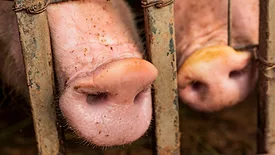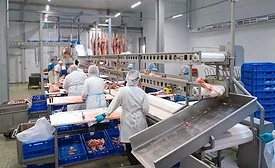Meat/Poultry
Advancing Science-Based Approaches to Salmonella Control in Meat
Research and data-driven tools are being applied to reduce Salmonella risk in meat production and processing
February 9, 2026
Never miss the latest news and trends driving the food safety industry
Newsletters | Website | eMagazine
JOIN TODAY!Copyright ©2026. All Rights Reserved BNP Media.
Design, CMS, Hosting & Web Development :: ePublishing











